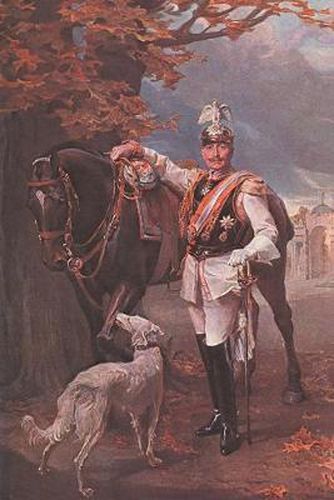Readings Newsletter
Become a Readings Member to make your shopping experience even easier.
Sign in or sign up for free!
You’re not far away from qualifying for FREE standard shipping within Australia
You’ve qualified for FREE standard shipping within Australia
The cart is loading…






Kaiser Wilhelm II (1859-1941) is one of the most fascinating figures in European history. Inheriting the ‘mightiest throne on earth’ in 1888, he played a central part in fashioning the policies which culminated in the catastrophe of 1914-18, the collapse of the Reich, and his own abdication. To an extraordinary extent he was also representative of his epoch: brilliant, bizarre, aggressive, insecure. Yet German historians have virtually ignored him. They have written the history of the Kaiserreich without the Kaiser, of Wilhelminism without Wilhelm, leaving the field to the amateurs. Recently, the conviction has been growing, in Germany as well as in American and Great Britain, that the huge advances achieved in the social and economic history of Imperial Germany must now be complemented by deeper research into the Kaiser’s character, his role in decision-making, and his relationship to the social and cultural values of his era. In September 1979, a dozen historians met in the Kaiser’s palace on Corfu to discuss these questions: this book contains their findings.
$9.00 standard shipping within Australia
FREE standard shipping within Australia for orders over $100.00
Express & International shipping calculated at checkout
Kaiser Wilhelm II (1859-1941) is one of the most fascinating figures in European history. Inheriting the ‘mightiest throne on earth’ in 1888, he played a central part in fashioning the policies which culminated in the catastrophe of 1914-18, the collapse of the Reich, and his own abdication. To an extraordinary extent he was also representative of his epoch: brilliant, bizarre, aggressive, insecure. Yet German historians have virtually ignored him. They have written the history of the Kaiserreich without the Kaiser, of Wilhelminism without Wilhelm, leaving the field to the amateurs. Recently, the conviction has been growing, in Germany as well as in American and Great Britain, that the huge advances achieved in the social and economic history of Imperial Germany must now be complemented by deeper research into the Kaiser’s character, his role in decision-making, and his relationship to the social and cultural values of his era. In September 1979, a dozen historians met in the Kaiser’s palace on Corfu to discuss these questions: this book contains their findings.